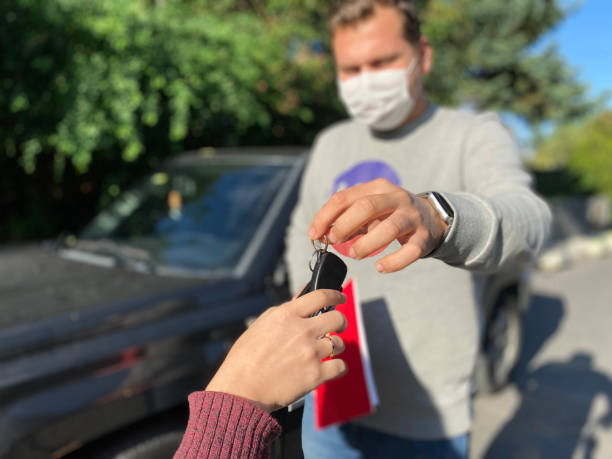
“Cost effective” is one way that buying a used car NI wide is referred to as. So long as the car is in good shape and suits your needs that is. Carlover is on hand, taking you through the top ten pitfalls to avoid. When buying a used car, it can be tempting to grab that really good, ‘too good to be true’ deal on Gumtree from a private seller, which could be the case. Unless you’re experienced in buying used cars privately or have someone at hand who is, you are better served buying used family friendly cars, and used first time buyer cars that are supplied by reputable dealers – eliminating the chance of a problematic used car.
A couple of our trusted used car dealers Belfast and Beyond:
A used car in some instances, may have a number of flaws that could lead to costly repair bills that you will need to foot the bill for. . However, when buying from a reputable dealer, there is a legal obligation to outline the flaws of the car and provide warranty, whereas with private sales, it is entirely up to you.
To effectively negotiate pricing and secure a great deal, it is necessary to understand the complexity of used automobile purchase.
Avoid these ten car-purchasing blunders to reduce your chances of buying a damaged or problematic used car or getting into financial difficulties.

1. Failure to set a budget when buying a used car
It’s absolutely critical to set a budget before looking for a used car. This will assist you in properly limiting your spending to what you can afford, as well as developing tactics and a budget plan to pay for it. This will also prevent you from purchasing a used car that is far above your means. If you don’t have enough cash on hand to acquire a used car outright, you can make the purchase on finance (See our used car finance blog).
Aside from the down payment, you’ll need to account for your monthly loan payments in your budget. There are numerous free car loan calculators available online that can assist you in estimating your loan repayments as a starting point. Many used car dealer websites now have finance calculators that allow you to do just this.
2. A lack of preference in car type
Just because you have the means to purchase a good-condition used car doesn’t mean you should. Purchasing on a whim could lead to expensive monthly repayments on a vehicle that doesn’t quite fit your current or future needs. . If you don’t think about your used automobile purchase thoroughly you may find yourself in a position where you need to replace your car before your repayment terms ends. .
The objective of purchasing a used car should be considered. Do you require a used car for personal or business purposes? Do you intend to use it every day or simply on special occasions? Will it be used to haul and transport freight or will you be driving your loved ones in it? Such factors will influence the sort of used vehicle you purchase. For commercial use, a pick up with a huge towing capacity is appropriate, while SUVs with a roomy interior are ideal for family vacations.
Aside from the car’s purpose, you need also consider:
- Dimensions & Specifications
- Aesthetics and Appearance
- Features for entertainment and safety
- Fuel Efficiency
- Warranty
- Age
3. Shopping using a monthly payment plan
It’s not a good idea to use your monthly payments as the primary foundation for calculating pricing if you’re planning to buy a used car on finance. A modest monthly payment may appear to be cost-effective and friendly to your budget, but it may mean a longer repayment term.
This could lead to you repaying more money. Keep in mind that your finance agreements’ interest is computed based on your monthly payments, credit/risk score and term length—the longer your auto loan is open, the more interest you may have to pay. The bottom line is to always study the detail including interest rate and the total amount you will pay as part of your agreement.
In addition, the value of a car depreciates with time. Although used cars do not depreciate as quickly as new cars, they have the potential to lose up to 15 to 20% of their value per year. Keep this in mind when thinking about when your repayment terms end and the potential equity you have in the car to re-use against your future vehicle purchase.

4. Failure to conduct a car history check
Before purchasing a used car, it is critical to obtain a vehicle history report. With trusted dealers like Shelbourne Motors and McKinney Motors, this information is readily available. Checking the history of the car before it becomes yours will help you avoid potential difficulties. The vehicle could have a number of hidden flaws that you can’t see, such as flood damage or a rolled back odometer.
Aside from technical concerns, the vehicle history report will reveal how many prior owners the car has had, how many times it has been in an accident, and whether it has been declared a total loss by an insurance company.
Check to see if the vehicle has been recalled as well. Check the recall database to determine if the car you want to buy is on the list. If it does, do not purchase the vehicle unless the seller can demonstrate that the recall has been resolved. There are millions of car owners who have opted to ignore recall notices for safety problems. Purchasing a recalled vehicle that has not been repaired puts you and your passengers safety in jeopardy.
5. The Test Drive: Especially Important for Used Cars
The test drive is one of the most significant aspects of buying a car since it allows you to get a firsthand impression of how the automobile functions on the road. This is also a good time to gain a feel for driving and being inside the car. You may test its information, entertainment and safety features, in addition to its driving quality.
Is it pleasant to sit behind the wheel, or does it make you feel claustrophobic? Is there enough power and pick-up when accelerating in the car? Is it fast enough for your liking, or is it too slow? Are there any features that aren’t functioning properly? During the test drive, these and other questions will be addressed.
If time and the seller permit, it is recommended to take a longer test drive, try hitting the motorway and driving it though the city, 30 minutes, to really get a good feel of the car.
All of the trusted dealerships that we work with allow for test drives with a team member with you to answer any questions you may have.
6. Failure to view the vehicle in person
Regardless of how hectic your schedule is, make time to inspect the vehicle in person. It’s possible that what you see online isn’t the same as what you see in person. You can also detect mechanical and structural faults by carefully inspecting the exterior and interior car parts and accessories. If you don’t know much about cars, have someone who is familiar with them perform the examination for you.
Pay close attention to the car’s engine. Look for potential oil or water leaks, worn belts and unusual squeaks, rattles or knocks.. Also, look for corrosion, dents, and other evidence of major wear and tear, as these are telltale signs that the vehicle has not been properly maintained.
7. Not conversing with the used car dealers
A face-to-face meeting with the seller entails more than merely evaluating the vehicle or taking a test drive. It’s also a good time to inquire about the car’s specifications. The following are some questions to ask to gain insight into the car’s performance:
- Why are you selling the vehicle?
- When did you get it and how long have you had it?
- Do you use it on a regular basis?
- Is there anything about the car that troubles you?
8. Refusing to provide the vehicle’s title and other legal documents
Always ask for the car’s title, registration, bill of sale, and copies of all other documents necessary to register the car in your name to prevent the sad experience of buying a secondhand car that isn’t really registered to its seller. These legal documents, in addition to the car keys, are required to verify that you are the new owner. You’ll also need this information if you want to buy car insurance.
Because these documents are so important, always double-check that the information they contain is correct.

9. Not requesting a car warranty
Check with the seller whether there are any remaining automobile warranties if you’re buying a used car that’s only three or four years old. A warranty may still be available for vehicles that are less than five years old and have minimal mileage. If there is any, request that the vendor transfer it to your name. These warranties cover common car problems including engine difficulties as well as roadside assistance such as towing, flat tyre service, and extrication.
Are you ready to buy your next vehicle?